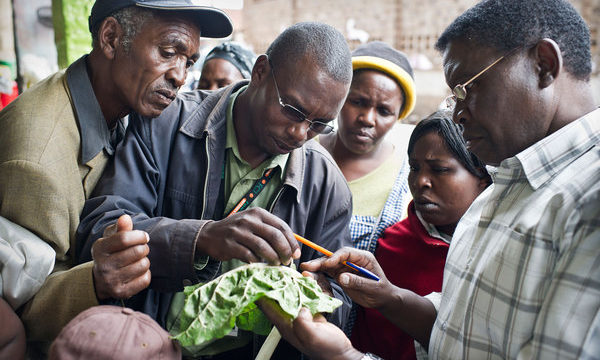 Breeding plants for fast growth and high yield may make them more susceptible to pests and diseases. New research from the University of Zurich using the model plant Arabidopsis thaliana has confirmed long suspected theory, showing that when plants put more resources into growth they often shut down some defence genes.
Breeding plants for fast growth and high yield may make them more susceptible to pests and diseases. New research from the University of Zurich using the model plant Arabidopsis thaliana has confirmed long suspected theory, showing that when plants put more resources into growth they often shut down some defence genes.
Tobias Züst, lead author of the paper published in Proceedings of the Royal Society B, believes that breeding for higher yields has led to greater susceptibility to pests and pathogens, resulting in increased pesticide use worldwide.
However, Eric Danquah, director of the West Africa Centre for Crop Improvement in Ghana, said that researchers at the centre “have in the past successfully bred early maturing and disease-resistant varieties which are [also] high yielding”.
“A generalisation that faster growth will always compromise plant defence needs to be treated with caution,” he warned.
Mark Laing, director of the African Centre for Crop Improvement in South Africa, suggests that farmers should not move away from high-yield crops completely, but should spread the risk by planting a mixture of varieties.
“Farmers mix their risk by planting a mixture of high ‘yield potential’ varieties with high ‘yield stability’ varieties,” he said.
That way, in a good year, with fewer pathogens and pests, the plants with high yield potential produce a bumper crop and those with high yield stability provide a stable, moderate crop, whereas in a bad year, where plants with high yield potential produce very little, farmers can rely on the more resistant plants to provide a stable, moderate crop.
Read more:
- Tobias Züst, Bindu Joseph, Kentaro K. Shimizu, Daniel J. Kliebenstein and Lindsay A. Turnbull (Published online before print 26 January 2011) Using knockout mutants to reveal the growth costs of defensive traits. Proceedings of the Royal Society B. DOI: 10.1098/rspb.2010.2475.
- Benjamin Kolb (8 February 2011) Fast-growing plants linked to poor pest resistance. SciDev.Net.
- University of Zurich (28 January 2011) News Release: Fast growth, low defense – plants facing a dilemma.
Related News & Blogs
Try the PlantwisePlus Factsheet Library app to get crop protection information offline
Access PlantwisePlus crop protection information from the field using the Factsheet Library App (© CABI) PlantwisePlus has collaborated with in-country experts to write practical crop protection information, aimed at plant doctors, extension worke…
19 August 2024




